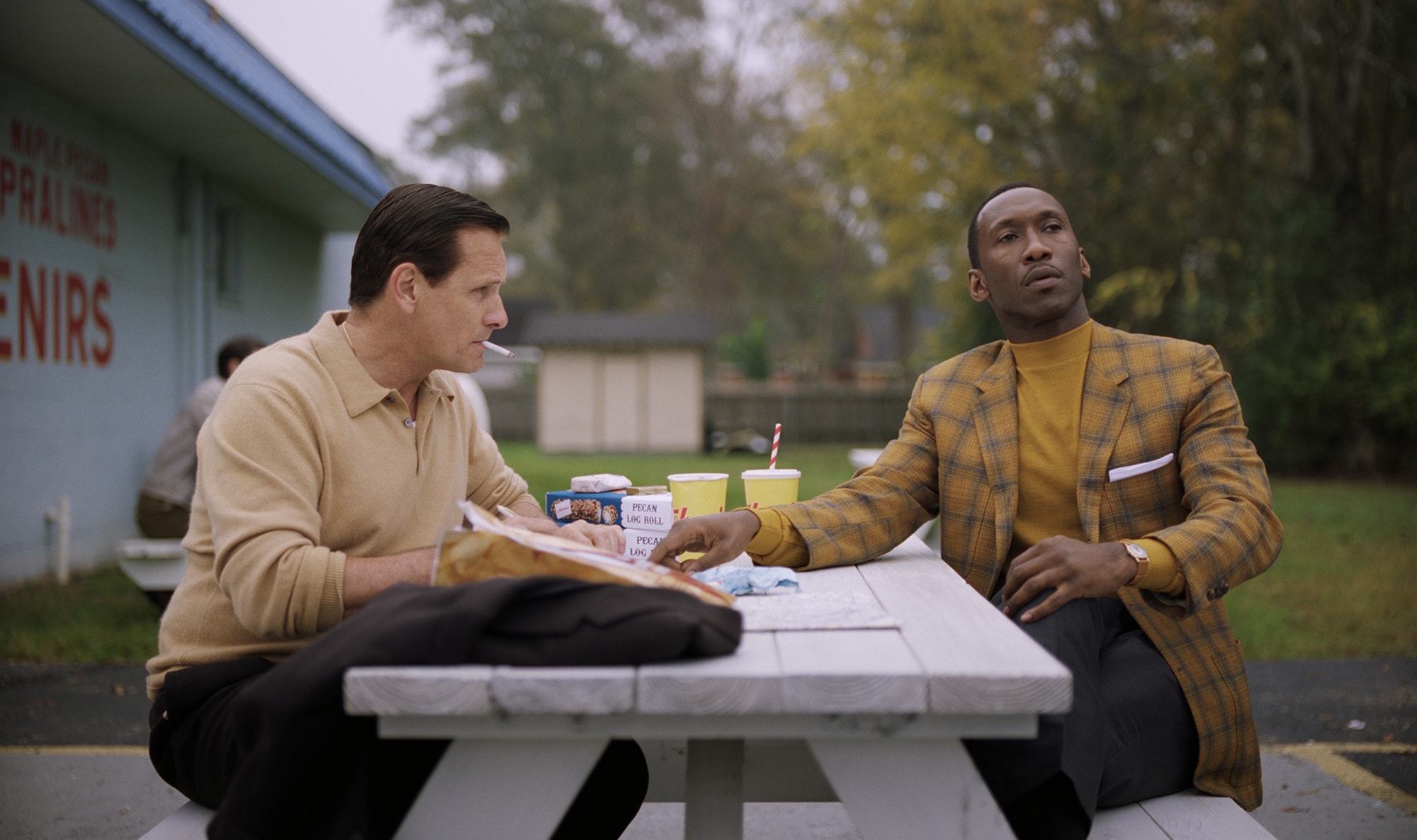
AFI Fest Review: ‘Green Book’ is a racially-charged period piece meant for the industry crowd
Written by: Adriana Gomez-Weston, CC2K Staff Writer
It seems in Hollywood that dramas that explore our country’s racist past have always been awards bait, and favorites of the industry crowd. Films such as 12 Years a Slave, The Help, Driving Miss Daisy, Hidden Figures, and Mudbound have all been heaped with accolades and have propelled their actors to new heights. The latest film that aims to continue the tradition this awards season is Green Book.
Directed and co-written by Peter Farrelly, Green Book is the story of an unlikely friendship between two men from different sides of the tracks. Described by many as a reverse Driving Miss Daisy, Green Book follows the slick-tongued, Tony (Lip) Vallelonga (Viggo Mortensen) as he transports world-renowned concert pianist Don Shirley (Mahershala Ali) from New York City to the trenches of the Deep South. Co-written by Tony’s son Nick Vallelonga, the film exists primarily from Tony’s perspective. As the real Tony and Don both passed away within months of each other in 2013, their perspectives are absent from the film. Set in 1962, Green Book doesn’t shy away from the racial tensions of the time, but it does provide audiences with a storybook ending that will please most viewers.
As we’re introduced to Tony and his family, he can be heard uttering racial slurs in Italian as two black men repair something in his home. Tony’s bighearted wife Dolores (Linda Cardellini), offers the men drinks. After the men leave, Tony throws the used glasses in the garbage. Learning that Tony is racist from the beginning, the events that transpire moving forward are no surprise for the audience.
A club worker, Tony is known throughout New York as someone who can handle “trouble.” Unfortunately, the club is shut down for renovations, so Tony is forced to look for work so he can provide for his family. Tony is recommended for a driving job for a mysterious, but prestigious doctor. Upon arrival, Tony learns that the doctor is not a traditional one. The man behind the curtain is Doctor Don Shirley, an incredibly successful concert pianist…who happens to be black. Don admits that he doesn’t just need a just driver, but someone who can accompany him as he embarks on a multi-state concert tour from New York to Alabama. Despite Tony’s brashness, Don believes Tony is the right man for the job. A good-paying job, Tony decides to join Don despite his prejudices.
The greatest thing showcased in Green Book is the heartbreaking reality of black entertainers of the past (and at times the present). Described as a genius and virtuoso, Don is courted by rich white people across the country to play for elite, “cultured” crowds. The real Don Shirley held a Doctorate of Music, Doctorate of Psychology, and a Doctorate in Liturgical Arts. He even spoke eight languages fluently, and was a gifted painter. Despite his talent and many accomplishments, Don was still viewed as another black man by the very people that praised his work. As the duo ventures further into the South, Don is treated less and less as an equal. Tony employs the use of the “Negro Motorists Green Book,” a book that details colored-friendly establishments across the country.
It’s heartbreaking to see Don relegated to broom closets, and ordered to eat separately at the establishments he’s asked to play. The film’s Don Shirley strains to find his place. While he doesn’t fit in with other black people, he is not viewed as equal by the white people who appreciate his artistry. As the trip progresses, Tony’s and Don’s hearts grow softer as they open up to each other and endure trials and tribulations on their journey. Their friendship is beautiful despite their differences, and the unique circumstances it was born out of.
The entire cast of Green Book tunes in some amazing performances, especially Mahershala Ali as Don. Straight-laced, eloquent, and quietly powerful, Ali proves once again he is an actor to watch this awards season. The greatest shame about this is that Universal is campaigning for Ali as Best Supporting Actor. Along with Mortensen, Ali carries this film. Both men are leads, as the film couldn’t work without one or the other. As stated previously, Green Book is a film made to appease critics and the industry crowd. Does the marketing and awards campaign for the film contradict the story? Often black actors gain their clout in the acting realm by taking on projects similar to Green Book. The Help propelled Octavia Spencer and Viola Davis into another stratosphere. 12 years a Slave launched the amazing career of Lupita Nyong’o. Ali gained his status through another creature of film- Moonlight, and deserves to be treated as more of a leading man.
While the film is good, Green Book‘s message has been muted due to surrounding controversy. Prior to AFI Fest, Viggo Mortensen was criticized for using the N-word casually during a Q&A session of the film. Although he profusely apologized, the PR mishap could potentially dampen the reception of the film…at least when it comes to black critics and audiences. At times the black perspective is lost in the film, which can stifle what it’s trying to say. The industry crowd will still appreciate Green Book though, and the message it’s trying to convey.
